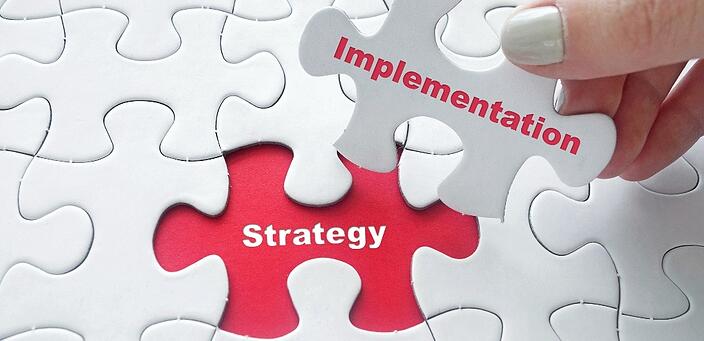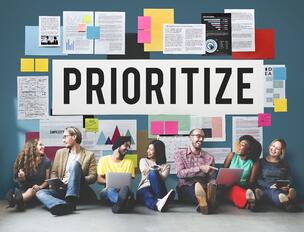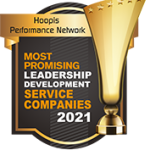How to Implement Ideas Learned at a Conference or Seminar

There’s nothing like a conference or seminar to motivate everyone and ignite our imagination. We come away with new ideas and new ways of looking at our industry and our role within it. We all like to think we will get back to the office invigorated and ready to tackle our tasks with a set of fresh eyes and enthusiasm, and business will grow and thrive because of what we have learned at the event.
Unfortunately, that’s not always the case.
More often, we’re excited and motivated when we leave the conference, but by the time we get back to the office, the familiar demands of the old routine command our attention, and the fresh perspectives inspired by the event are lost before we ever get a chance to see how they could impact our business.
How can we, and if we are so lucky, our team actually implement the ideas we’ve learned at the conference? Whether you are a solo practitioner, in a partnership, with or without your own support, part of a sales team, or in management, the process is virtually the same. Let’s look at a few best practices which can help everyone implement those golden nuggets that we discovered.
Have a Debriefing Session
On the first day of work after the event, while the ideas are still fresh on our minds, gather with your fellow attendees for a brief meeting. Discuss what you learned, what takeaways were you most excited about, and how do you think the new information could benefit everyone, you, team members, clients, and the overall business results.
Make a written list of all of the ideas that you or the group came up with.
This brings the excitement of the conference directly into the office and shows you’re serious about using what you just learned. A meeting like this immediately integrates the world of the conference into the world of the workplace.
Share with the People Who Couldn’t Attend
Everyone needs to be on the same page, even those who couldn’t attend the event. So, be sure to share some of the conference highlights with other members of the team in a short meeting or at a minimum through a memo. This allows everyone to get up-to-speed and helps them feel valued and included, even though they weren’t able to attend.
It often is an effective idea to ask all attendees to present certain aspects of the conference (even quick tips and takeaways or short overviews of the big ideas) to the team. This could be as simple as a short two-minute presentation at a meeting, or a group email. This serves two key purposes, first it helps solidify the attendee’s own learning, while providing the rest of the team access to the material. Next, it can bring a new level of excitement about the event, motivating others to attend the next one.
In our own excitement, it’s tempting to want to share everything. However, don’t overwhelm them by trying to stuff two days’ worth of material into one meeting or email. Let them know that the plan is to be implementing new ideas slowly, with their help, and how important their feedback and ideas will be.
Connect with Your Expanded Network
New ideas aren’t the only thing that come from a conference, meeting or seminar: the new relationships you form at such events could help you take your practice to the next level, too.
A few days after the conference, send a short email to your new contacts with a reminder of who you are and how you met, and maybe bring up something you talked about. Be sure to take the time to connect with that person, and possibly with their company on Facebook, Twitter, or LinkedIn, wherever you have a strong and consistent professional presence. Don’t wait too long to do this: by waiting, you run the risk of forgetting the person or the person forgetting you!
You might know immediately that you don’t have much to offer a particular person, or that he or she doesn’t have much to offer you from a professional standpoint. Reach out anyway. It never hurts to make and nurture connections.
Do One Thing at a Time

One of the big advantages which comes from these events are the large number of ideas, concepts and information that you gathered as takeaways. However, these takeaways can easily become overwhelming if you try to implement them all at once. Moving in so many different directions, can potentially add a workload which can cause frustration, burnout and even low morale.
Start with the list that comes from the debrief and select no more than three ideas. Now prioritize them, and instead of trying to implement everything, choose one idea that would be most practical or beneficial and start with that. You’ll want to consider your time frame, resources, scope of the idea, costs and potential payoff.
Make a Plan
Choosing an idea and saying, “Okay, let’s do it!” isn’t going to do it at all. Once you’ve chosen an idea to implement, you need a specific plan. Take the time and put some thought into it. Don’t be afraid to reach out to whoever you got the idea from. This is an industry was sharing is key. If you have a team, delegate certain tasks to certain people. Regardless, you will need to set deadlines as appropriate, and be held responsible for regular updates about progress, timelines and results. Give yourself and your team the appropriate resources and timelines in order to make the idea into reality, and not to feel overwhelmed by juggling the new material on top of your current workload. Interns can often be a great cost-effective resource when it comes to implementing different types of technology or data/marketing systems.
Adapt that plan as required, and include a Phase 2, 3, and 4, so you can implement the next greatest conference takeaways after successfully integrating the first.
Expect Growing Pains
Some ideas are easier to implement than others. Some are more warmly received by your team than others. Be patient as you make the changes and encourage an open line of communication with your team about road bumps and progress. Be clear about the intended outcome and how it benefits your organization.
Make It Work for You
Your company and the culture within it are unique. Not every idea or strategy will suit you exactly as it was presented at the conference. Some will not be right for you at all, no matter how good they sound or how well they work for other organizations or individuals. Don’t insist on fitting that square peg into a round hole; instead, refine the idea to benefit your business, and be ready to discard it (and try something new!) if it doesn’t work for you.
A conference alone won’t change your business, your culture, your productivity, or your results. It’s the proper integration of conference ideas with the ongoing enthusiasm and commitment that does the trick.
Before you even sign up for the next conference, be sure to allocate time and resources to the implementation of what you learn there. Schedule that follow-up debrief meeting with fellow attendees, understand that you or someone on your team may have to do more (or do something differently), and plan for changes within your business model—because that’s the whole point. If you’re not planning for change and growth after the seminar, you might as well skip the event. Ideas are only useful if they’re implemented.
FSEdNet: Blended Learning
Our three training platforms for the financial services industry, provide competency-based learning, where individuals have a voice in not only what they want and need, but also in when and how they get it. These platforms provide a highly efficient and effective way to eliminate skill gaps and develop core competencies and purpose: FSEdNet for advisors and agents, FSLEdNet for leaders and FSSEdNet for staff members.
To learn more please contact us and visit hello.fsednet.com


